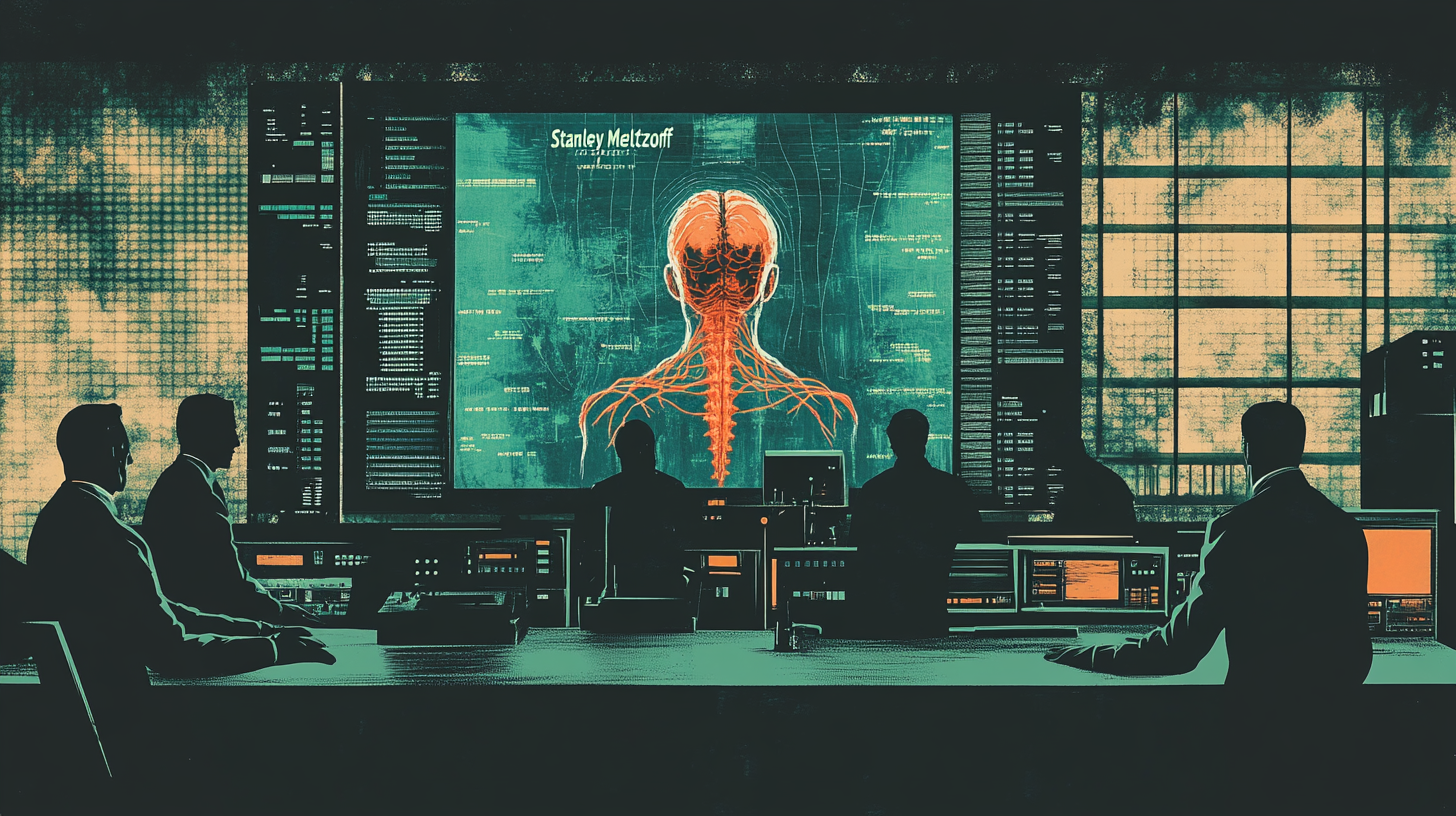"The Puppet Masters" Novel Foretells an Invasion Without a War
Heinlein's "The Puppet Masters" explores Cold War fears through a gripping tale of alien infiltration, personal duty, and the enduring fight to preserve freedom and identity.

Published in 1951, "The Puppet Masters" is one of the sharpest expressions of mid-century American science fiction—a novel that threads high-stakes suspense with the tense fabric of its time.
Robert A. Heinlein, already recognized for his crisp prose and speculative daring, offered readers more than just an alien invasion yarn. He gave them a scenario soaked in the psychological dread of Cold War America, a moment when the line between patriotism and paranoia often blurred.
The backdrop was perfect for such a story. Nuclear arsenals were multiplying, government secrecy was on the rise, and the American imagination was steeped in the fear of hidden enemies. Into this climate came Heinlein's vision of insidious invaders—intelligent parasites that don't destroy cities or level planets but instead take over minds, eroding freedom from within. It was a reflection of a cultural moment defined by suspicion, conformity, and vigilance.
Heinlein's skill lay in crafting a story that moved briskly without sacrificing depth. While many science fiction writers of the era focused on gadgets and grand vistas, he honed in on systems, institutions, and the individual's place within both. His heroes are men of action and duty, shaped by military precision and moral certainty.
Critics at the time praised "The Puppet Masters" for its tension and clarity. Reviewers hailed it as "thunderously exciting," and early readers recognized the novel not only as thrilling entertainment, but also as a cautionary tale with teeth.
The Enemy Within
At the heart of "The Puppet Masters" lies a concept as chilling as it is compelling. The invader does not come crashing down from the skies with weapons or war cries. It creeps in unnoticed, attaching itself to the body and overriding the mind. Heinlein's alien threat does not seek destruction in the traditional sense. It seeks possession, replacing personal will with collective control.
This is not science fiction built on spectacle. It is rooted in the fear of infiltration, the idea that anyone around you could already be compromised. The parasite serves as a perfect symbol for ideological subversion, a common fear in 1950s America. It represents the erosion of independence, the terrifying thought that loyalty and thought itself could be replaced without a sign.
Heinlein does not rely on abstraction to make his case. He builds his scenario on the kind of logic and detail that make speculative fiction feel like an extension of reality. The biology of the invader is rendered with precision. The implications of its presence ripple outward into government, science, and everyday life. Each development pushes the story forward with unrelenting pace.
The plausibility of the threat makes it all the more frightening. There is no alien civilization in the clouds to bomb. There is only the covert, insidious enemy already among us. Heinlein's story suggests that the real danger comes not from what we see, but from what we dismiss until it is too late. The battleground is not a distant world. It is the human mind.

Men of Action and Principle
In "The Puppet Masters," Heinlein presents his defenders of humanity not as idealists or dreamers, but as men forged in duty and sharpened by necessity. The intelligence agents at the center of the novel operate under layers of secrecy, bearing the weight of a nation's survival without public recognition or reassurance. Their professionalism is matched by a moral clarity that defines much of Heinlein's work—these are men who do what needs to be done, regardless of comfort or acclaim.
The protagonist is a man of action, yet he is not reckless. His strength comes from discipline, not bravado. He obeys, assesses, and strikes when necessary, always with the understanding that lives and liberties are at stake. Around him are colleagues who share the same sense of mission, including a commanding figure known only as the Old Man, whose authority is rooted in both wisdom and experience. Together, they form a bulwark against a threat that cannot be fought with conventional arms.
Secrecy in the novel is not portrayed as a corruption of democracy, but as a necessary shield in exceptional times. Heinlein does not romanticize intelligence work, but he respects its importance. He shows how clear thinking and quiet courage can be just as vital as any weapon. In a world where the enemy hides behind familiar faces, vigilance becomes a civic virtue.
The book echoes traditional American values—self-reliance, loyalty, and the defense of freedom against invisible foes. Heinlein's characters do not seek power. They accept responsibility. They act without hesitation when the time comes. In doing so, they embody a kind of restrained heroism that aligns perfectly with the book's vision of what it means to stand guard for civilization. They are not just fighters. They are guardians of principle.
Conflict, Loyalty, and the Human Cost
While "The Puppet Masters" is often praised for its pace and premise, its emotional weight comes from the characters who carry the burden of its conflict. The protagonist, drawn from the hard school of intelligence work, is more than a functionary. He is a man who evolves under pressure. What begins as a mission becomes something personal, and as the threat escalates, so too does his understanding of what it means to defend more than just territory.
Heinlein allows his hero moments of doubt, but never of hesitation. Through danger, discomfort, and personal risk, the character's loyalty becomes tested not only in the field but in his relationships. He does not fight for abstract ideals alone. He fights for people—his colleagues, his countrymen, and those he learns to care for in ways that challenge his stoic exterior. This tension between emotional connection and professional detachment gives the story much of its depth.
The cost of resistance is portrayed honestly. There are physical risks, but there is also wear on the soul. The loss of trust, the isolation of secrecy, and the constant weight of vigilance all exact a toll. Heinlein does not shy away from showing the psychological strain that comes with duty. Victory, if it comes, is earned not only through cleverness and courage but through the willingness to sacrifice comfort, safety, and sometimes, part of oneself.
Loyalty in the novel is never blind. It is chosen, renewed through action, and measured by what a man is willing to endure. "The Puppet Masters" reminds us that freedom is not maintained by speeches or slogans. It is preserved by those who are willing to pay the price for it quietly, without demand for recognition. It is earned in silence, and often, in solitude.
A Legacy of Suspicion and Strength
"The Puppet Masters" helped set the tone for a generation of science fiction that turned its focus inward. Earlier tales often imagined epic battles among stars and distant planets. Heinlein instead introduced a psychological war, one where the true fight was for the human mind and the integrity of the individual. His invaders did not make dramatic entrances. They infiltrated unnoticed and tested the very definition of identity and trust.
This internal focus shaped the subgenre of invasion fiction that followed. "Invasion of the Body Snatchers," released a few years later, reflects many of the same fears. Both stories explore the collapse of trust, the corruption of the familiar, and the terror of being surrounded by those who are no longer truly themselves. Heinlein's novel laid the foundation for stories where the danger is not only what comes from the stars, but what wears the face of the neighbor next door.
Beyond its influence, "The Puppet Masters" endures because of its message. Freedom must be defended not through pageantry, but through vigilance and sacrifice. The book upholds values of duty, responsibility, and courage under pressure. Its heroes do not win medals. They protect what must be protected and return to silence.
Heinlein does not end with despair. He ends with strength. The novel cautions us that liberty can be lost without a sound, but affirms that it can also be preserved through unyielding conviction. In a world still filled with unseen pressures and subtle manipulations, "The Puppet Masters" remains as relevant as ever. Awareness is the beginning of defense. And character is its finest weapon.

